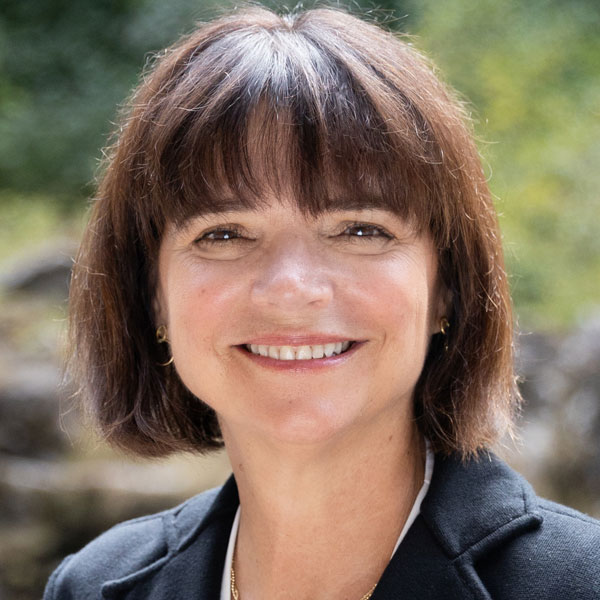Since the days of the pandemic, we have become a society that has grown accustomed to online answers for everything. From shopping to medical care, we search the web to find the right place for our needs. The desire for online marriage counseling has grown over the past few years.
Couples who want to connect with a counselor scour the web to find the right place of service for their needs. What makes online marriage counseling appealing? Does it work as well as in-person counseling? Let’s look at some common questions about online marriage counseling.
What do I look for in a counselor?
Once you have decided to seek marriage counseling online, you can begin the process of choosing the Christian counselor that is right for you and your spouse. Knowing what to look for in a counselor can help you narrow down your choice. The following ideas can help you discover an online Christian counselor for you and your spouse.
 The most common recommendation is to seek a private practice counselor One who specializes in faith-based marriage counseling would be the best choice. You also want to make sure the counselor has undergone additional certification for couples. Sometimes you come across counselors who have not studied how to interact with and counsel couples.
The most common recommendation is to seek a private practice counselor One who specializes in faith-based marriage counseling would be the best choice. You also want to make sure the counselor has undergone additional certification for couples. Sometimes you come across counselors who have not studied how to interact with and counsel couples.
Don’t just go by the reviews Online marriage counseling can be screened through phone calls before committing to the service. You want to avoid a counselor who may not have the right training, so that you and your spouse do not end up thinking there is nothing left to do to help your marriage.
When you talk to the prospective counselor on the phone, be sure to ask questions Unless you ask direct questions, you won’t get a clear idea of the counselor’s credentials or mission statement. This will help you understand the techniques the counselor will use.
What are the benefits of online marriage counseling?
The most important benefit is that online marriage counseling can help you and your spouse improve your marriage. When you choose to work through the problems your marriage is suffering from, you are choosing to examine yourself. This is a big factor in how well online marriage counseling will affect your marriage.
- Online marriage counseling provides a time and space for you and your spouse to focus on each other, yourself, and your marriage.
- Through counseling, you are given tools to help you and your spouse improve your communication so that you can effectively discuss the situations you may face.
- Counseling will help you and your spouse rekindle the ability to share emotions and desires.
- Counseling can help identify where the issue started and why it remains. Behavior patterns are brought to the surface. This will allow them to be addressed productively.
- Because there is a counselor present, there is a mediator that can facilitate healthy and effective communication.
- The accessibility of online counseling no matter where you live is a big factor in the decision of a couple to choose online counseling. This is also a benefit when you need childcare or have to travel long distances to reach the office.
- Some couples believe that there is more privacy because the sessions are in the privacy of their own home.
- When you and your spouse have a long-distance marriage due to work responsibilities you can both access the session from your locations.
- The comfort of home often makes the choice of online marriage counseling the best choice.
- Most online counseling services for marriages have the ability for you and your spouse to join in a group session with others who are facing the same issues. This can help a couple learn from other couples.
What are the potential problems with online marriage counseling?
 Online marriage counseling can be a great tool to help you and your spouse overcome marital issues. It is recommended that you and your spouse weigh the benefits and problems that are commonly associated with online marriage counseling. It is a preference regarding what makes online marriage counseling appealing to you and your spouse.
Online marriage counseling can be a great tool to help you and your spouse overcome marital issues. It is recommended that you and your spouse weigh the benefits and problems that are commonly associated with online marriage counseling. It is a preference regarding what makes online marriage counseling appealing to you and your spouse.
One problem with online marriage counseling is the need for technology. This is becoming less problematic as advances are made in how easily we can access an internet connection that will sustain the session.
Even though you have researched and feel like you have made the best choice in counseling, there is still the possibility of not knowing the full ethical background of the counselor.
The most common problem is simply the lack of personal connection. Some people need a personal connection, and therefore, online counseling may not be the best choice.
When you are participating in online marriage counseling, the counselor is unable to make note of body language. The indicators given through body language are an important part of how a counselor can assist you and your spouse in marriage counseling.
The ability for the counselor to intervene or assist in a crisis is less likely to happen when the counseling is being conducted online.
Types of Marriage Counselors
When you are looking for an online marriage counselor, it is good to know that there are various types of marriage counselors. Choosing one that fits your needs as well as your financial situation is a big factor in the process of choosing online marriage counseling versus traditional in-person counseling.
Psychologist (Ph.D. or Psy.D.)
 The most commonly known counselor is a therapist known as a psychologist. This is a person who has not only completed training but has also completed a doctorate program in psychology. They must complete annual training to continue to hold their license. These therapists are usually on the higher end of the financial scale. The difference in the suffixes is that the Ph.D. trains with research and the Psy.D. trains with clinical training.
The most commonly known counselor is a therapist known as a psychologist. This is a person who has not only completed training but has also completed a doctorate program in psychology. They must complete annual training to continue to hold their license. These therapists are usually on the higher end of the financial scale. The difference in the suffixes is that the Ph.D. trains with research and the Psy.D. trains with clinical training.
Licensed Professional Counselor (LPC) or Licensed Mental Health Counselor (LMHC)
Counselors are differentiated by the degree they obtain. They have completed a master’s program in psychology rather than a doctoral program. Along with clinical experience and an exam, counselors are accredited through their state.
Licensed Clinical Social Worker (LCSW)
The main focus of licensed clinical social workers is on the social aspects of life, but they may choose to gain some training in marriage and family counseling. The degree required for LCSW is a master’s in social work, as well as passing the state exam.
Licensed Marriage & Family Therapist (LMFT)
Marriage and family therapists specialize in these relationships. They use strategies that focus on couples and families. They use tools that will focus on the dynamics of marriage and family. An LMFT is required to complete a master’s program in marriage and family therapy or a related field. They must also have clinical work accumulation as well as pass the licensing exam for their state. They must maintain the license.
Approaches to Marriage Counseling
Along with various types of counselors for online marriage counseling, you will come across various approaches or methods that the counselors use. Understanding the scope and focus of these methods can also play a factor in your choice of a counselor.
The Gottman Method This method focuses on addressing destructive behaviors that affect marriages, as well as using exercises to find a solution.
Emotion-Focused Therapy As its name implies, this approach focuses on understanding and discussing emotions.
 Cognitive Behavioral Therapy The focus of this method is to understand how your thoughts influence your behavior. It also helps you and your spouse identify the thoughts surrounding the conflicts.
Cognitive Behavioral Therapy The focus of this method is to understand how your thoughts influence your behavior. It also helps you and your spouse identify the thoughts surrounding the conflicts.
Systems Therapy The idea behind this method of therapy is that each person will identify and investigate their role in the marriage.
Discernment Counseling This method was designed to be used when one person wants to end the marriage, but the other wants to save it.
Narrative Therapy The thought process behind this method of therapy is based on the implication that the stories you tell yourself shape your decisions.
Integrative Behavioral Couples Therapy This type of therapy combines the goals of acceptance and change. Through evaluation and feedback, an active treatment plan is implemented.
Solution-Focused Therapy This method is organized and goal-oriented. This therapy focuses on the outcome that you and your spouse want to create.
Imago Relationship Therapy This method is based on a three-step method that considers the childhood needs and hurts of you and your spouse.
Relational Life Therapy This method aims to help you and your spouse understand how relationships shape experiences and how you feel about yourselves.
Developmental Model of Couples Therapy Using this approach will help you and your spouse focus on the growth and development of each other in the realm of marriage.
Psychobiological Approach of Couples Therapy This method is straightforward, as it focuses on what is going on in the marriage.
Use God’s Word as a Guide for Marriage
The best tool you and your spouse have is the Bible. God’s instructions for every aspect of life can be found when you seek the counsel of His Word. The Bible teaches us the truth while it exposes the lies. It will show us where we are missing the mark and where we need to aim.
All Scripture is breathed out by God and profitable for teaching, for reproof, for correction, and for training in righteousness, that the man of God may be complete, equipped for every good work. – 2 Timothy 3:16-17, ESV
Making Your Decision
Ultimately, you need to try something. Many people get stuck worrying about the details. This is often just a way to procrastinate and delay the help they need. Reach out to our office. We can help you find a counselor to start with. You don’t need to wait to find help. You can begin your journey today.
Photos:
“Just Married”, Courtesy of Victoria Priessnitz, Unsplash.com, CC0 License; “Happy Couple”, Courtesy of Getty Images, Unsplash.com, Unsplash+ License; “Rings and Bible”, Courtesy of Micah & Sammie Chaffin, Unsplash.com, Unsplash+ License; “Enjoying the View”, Courtesy of Timo Stern, Unsplash.com, CC0 License









